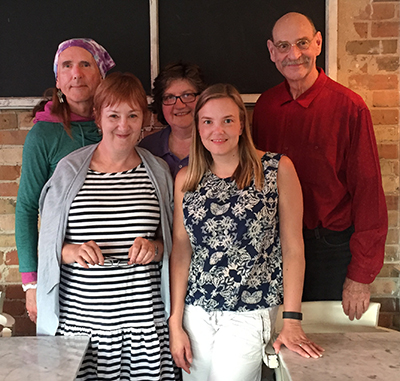Condom Use Research Team Findings Inspire A New Condom Design

Research by the Indiana University Kinsey Institute Condom Use Research Team (KI-CURT) has provided the impetus for the development of a male condom with a unique design. O-Ring condom, recently cleared by the federal Food and Drug Administration and now available for public use, was designed by inventor William Mistler to prevent a frequent condom use error: putting the condom on upside down.
Studies by KI-CURT have found that up to about 30% of both men and women apply condoms upside down which may result in loss of penile erection and cause embarrassment and frustration. Sometimes the condom is then reapplied with the correct part up, thus increasing the risk for sexually transmitted infections and unintended pregnancy.
Adam Glickman of O-Ring Products, LLC, — the company that developed the O-Ring condom — stated, “The work of the Kinsey Institute Condom Use Research Team to identify, document, and explain obstacles and errors in the use of condoms provided the data needed to validate our hunch that condoms are too easy to apply the wrong way.” Glickman, an entrepreneur and condom industry expert noted that it was not until the research of the KI-CURT that the magnitude of this application error was fully understood. This information provided the confidence and conviction needed to use technology to produce a condom for the market — the O-Ring Condom — that improves the ease and accuracy of condom application. The O-Ring Condom has a luminescent ring that is visible in the light and dark and faces down toward the penis.
Glickman stated that researchers like the KI-CURT may be unaware that the results of their work are often discovered by entrepreneurs who are hoping to find validation that their instincts are right. When that happens, entrepreneurship flourishes, driving new products that can improve the health of individuals.
The KI-CURT is internationally recognized for their research on the behavioral aspects of male condom use. A recent highlight of their work was the development of home-based and clinic educational programs designed to increase correct and consistent condom use among both men and women. Formed in 2000, the team is vested in advancing global sexual health and includes Stephanie Sanders and William Yarber at Indiana University; Cynthia Graham at the University of Southampton, United Kingdom; Richard Crosby at University of Kentucky; and Robin Milhausen of the University of Guelph, Ontario.
Support Kinsey
Love is more than an emotion. It is essential to our individual and collective well-being. Your support will help the Kinsey Institute advance research and education in the science of love and give a diverse field of researchers the resources they need to make new discoveries.
Pledge your support